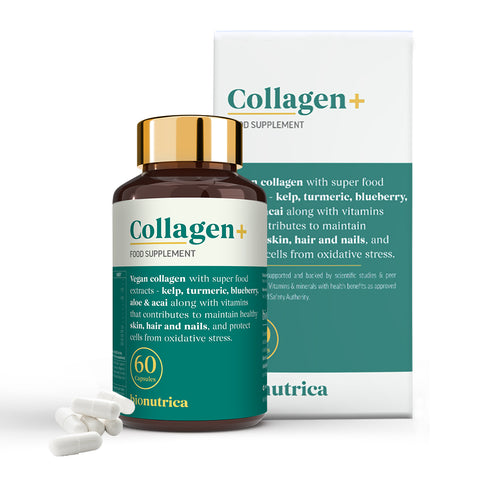Micronutrients play a vital role in maintaining our health and wellbeing. These essential vitamins and minerals are required in small amounts but are crucial for proper growth, immune function, and overall vitality. Despite their significance, many people in the United Kingdom and worldwide struggle to meet their daily micronutrient needs. In this blog, we will explore the best ways to get essential micronutrients and how they contribute to your health.
What Are Micronutrients?
Micronutrients are nutrients that our bodies require in minute quantities to function optimally. They include vitamins (like A, C, D, and B-complex) and minerals (like iron, zinc, magnesium, and calcium). Unlike macronutrients such as carbohydrates, proteins, and fats, micronutrients do not provide energy but are indispensable for various bodily processes, including:
- Boosting immunity
- Supporting bone health
- Enhancing cognitive function
- Promoting skin and hair health
The Importance of Micronutrients Backed by Research
Numerous studies highlight the impact of micronutrients on health:
- Vitamin D and Immunity: A study published in the British Medical Journal (BMJ) found that adequate vitamin D levels reduce the risk of respiratory infections by strengthening the immune system.
- Iron and Cognitive Development: Research in the American Journal of Clinical Nutrition links iron deficiency to impaired cognitive performance, especially in children and pregnant women.
- Zinc and Wound Healing: According to a study in Nutrients, zinc deficiency can slow wound healing and compromise immune responses.
Best Sources of Essential Micronutrients
The most effective way to obtain your micronutrients is through a balanced diet. Below are some key vitamins and minerals, their benefits, and dietary sources:
1. Vitamin A
- Benefits: Supports vision, skin health, and immune function.
- Sources: Sweet potatoes, carrots, spinach, and fortified cereals.
2. Vitamin C
- Benefits: Acts as an antioxidant, promotes collagen production, and boosts immunity.
- Sources: Oranges, strawberries, bell peppers, and broccoli.
3. Iron
- Benefits: Essential for red blood cell production and oxygen transport.
- Sources: Red meat, lentils, spinach, and fortified cereals.
4. Calcium
- Benefits: Strengthens bones and teeth.
- Sources: Dairy products, almonds, kale, and tofu.
5. Magnesium
- Benefits: Supports muscle function, nerve health, and energy production.
- Sources: Nuts, seeds, whole grains, and dark leafy greens.
6. Zinc
- Benefits: Enhances immunity and supports growth.
- Sources: Shellfish, nuts, seeds, and legumes.
Supplementation: When Diet Isn’t Enough
While a varied diet should be the primary source of micronutrients, some individuals may need supplements. For example:
- Vegans and Vegetarians: May require vitamin B12 supplements.
- Pregnant Women: Often need folic acid and iron supplements to support fetal development.
- Older Adults: May benefit from vitamin D and calcium supplements to maintain bone health.
Tips for Maximizing Micronutrient Absorption
- Pair Nutrients: Combine vitamin C-rich foods with iron sources to enhance absorption (e.g., spinach salad with orange slices).
- Cook Smart: Steam or blanch vegetables to retain water-soluble vitamins like vitamin C and B-complex.
- Limit Antinutrients: Reduce intake of substances like phytates and oxalates (found in some grains and leafy greens) that inhibit nutrient absorption.
Micronutrient Deficiencies in the UK
According to Public Health England, many UK residents are deficient in key micronutrients:
- Vitamin D: Up to 20% of adults have low levels, particularly during winter months.
- Iron: Common among women of childbearing age and teenage girls.
- Iodine: Often insufficient in vegetarian and vegan diets.
How Bionutrica Can Help
At Bionutrica.uk, we offer high-quality supplements designed to bridge nutritional gaps. Our scientifically formulated products, such as BioMan, DeCodeNAD+, Coq10300mg , Collagen supplement , Prostate supplement and BioCzn provide a comprehensive blend of vitamins, minerals, and other essential nutrients to support your health goals.
Conclusion
Meeting your micronutrient needs is essential for a healthy, vibrant life. Focus on a nutrient-dense diet, consider supplements when necessary, and make lifestyle adjustments to enhance nutrient absorption. For more guidance on maintaining optimal nutrition.
By prioritizing your micronutrient intake, you’re investing in your long-term health and wellbeing.





